- Category
- Culture
Macbeth Hits Different in Kyiv, A Nation at War
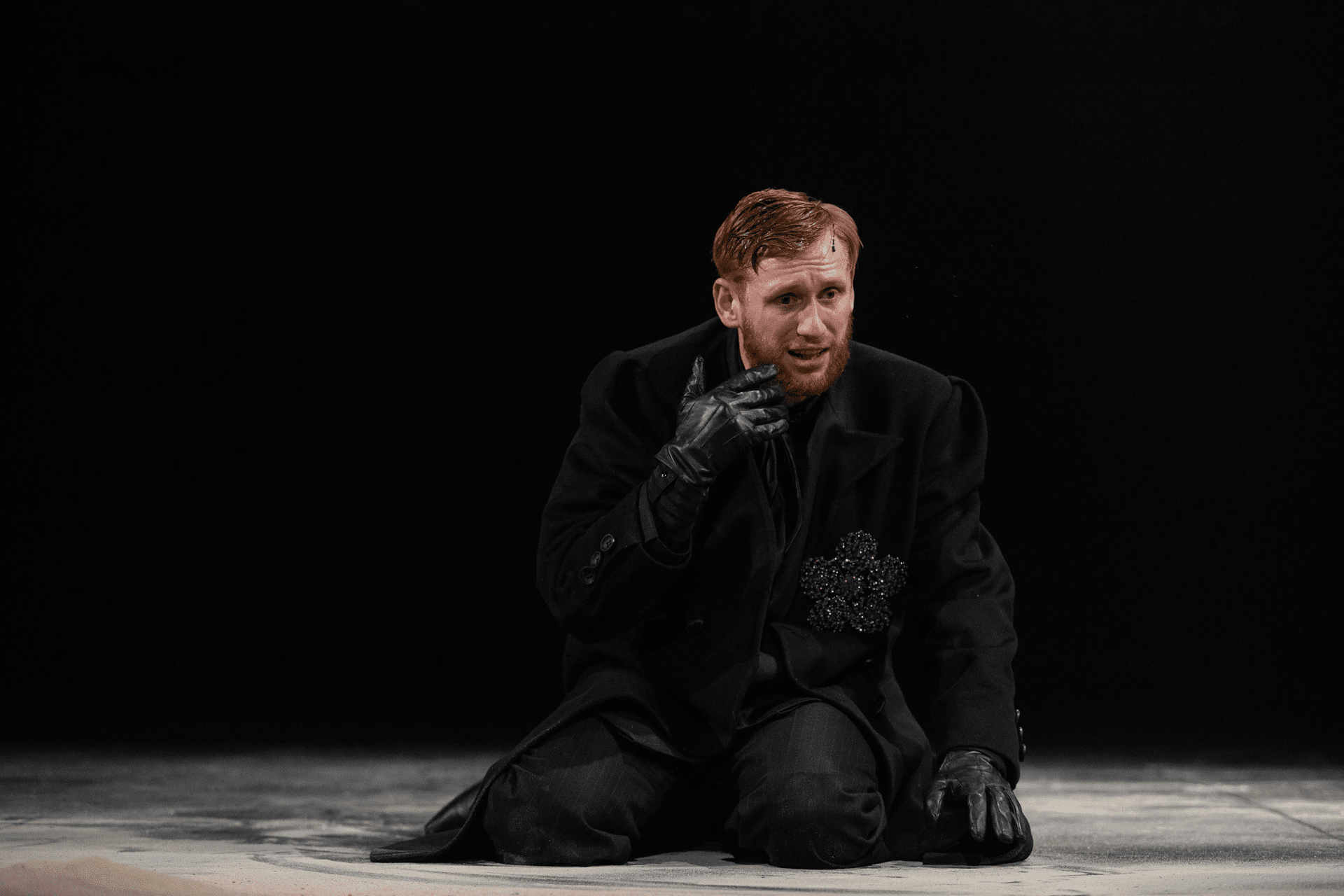
In a city where air raid sirens punctuate daily life and the weight of war is felt in every street, Macbeth has struck a nerve. With tickets sold out until May, betrayal, power, and paranoia are no longer just themes on stage but echoes of a country fighting for its survival.
Macbeth took Ukraine’s capital, Kyiv, by storm. The show sold out within minutes, with people standing in long lines at the box office for a ticket despite Ukraine’s notoriously cold winters. Tickets for upcoming performances are sold out until May as crowdes flock to bare witness to the productions innovation and originality which seamlessly blends technology into one of the worlds most classic pieces of theater. On February 28 and March 1, the show premiered at the Franko Theater, a historic cultural institution that has long served as a mirror to Ukraine’s societal struggles. For a country at war, the theater scene in Kyiv is experiencing a renaissance, underscored by productions like director Ivan Uryvsky’s Macbeth.
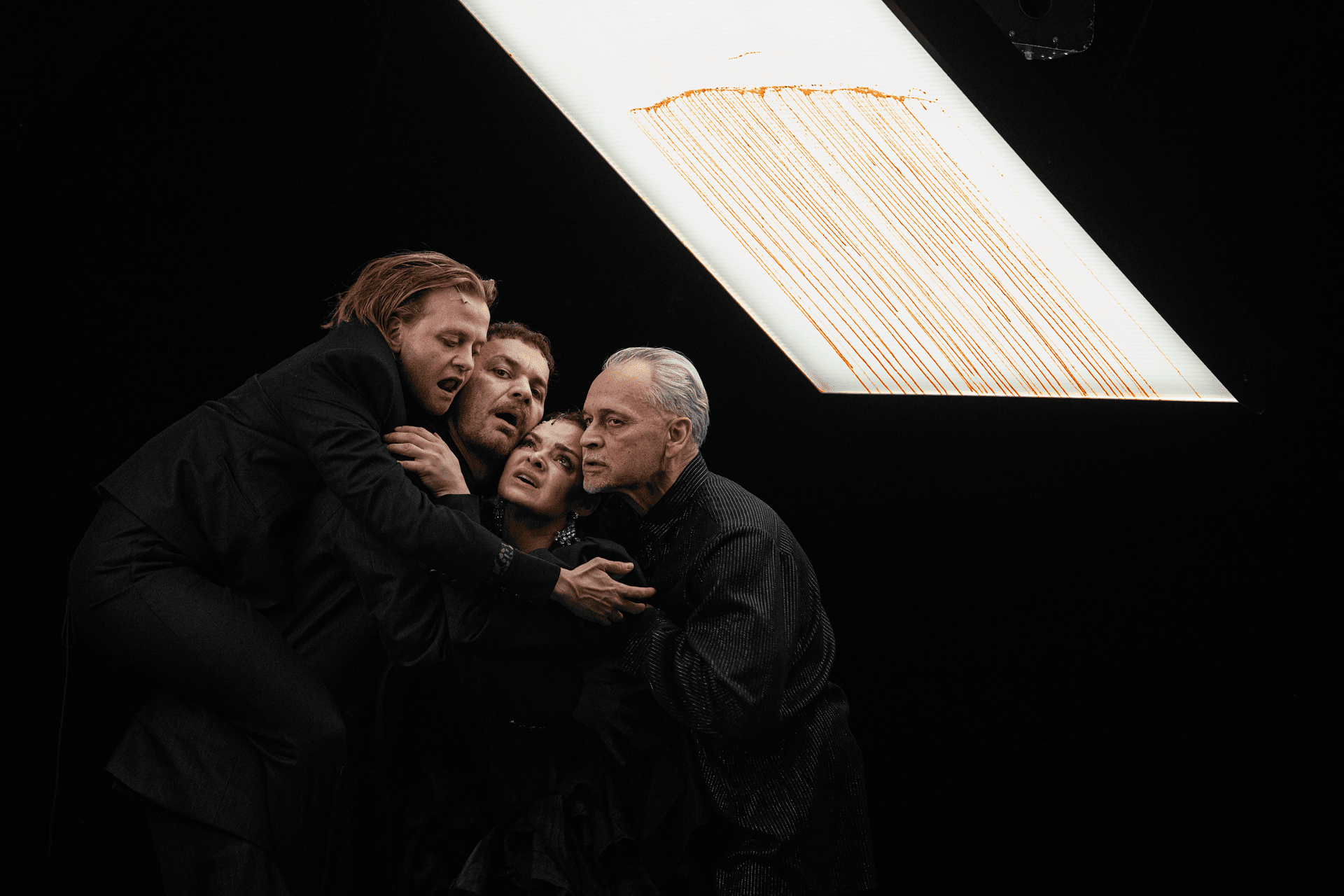
Last month, it was the stripped-down version of Cabaret, this month, it’s Macbeth. More than ever, age-old themes, like those of the Shakespearean classic, have found a new meaning. “I think it’s hard to find a more relevant play today,” says actor Oleksandr Rudynskyi, who plays the role of Macbeth. “Our performance starts with the line: ‘We finally won. A strange day. The scariest and the best.’”
The production
The play is directed by Ivan Uryvsky, who in recent years has given us theatrical hits like The Witch of Konotop, Caligula, The Landlord, and Mary Stuart. Known for reimagining Ukrainian classics, this is his first time tackling Shakespeare. But Uryvsky has enjoyed every step of it. Speaking with Vogue Ukraine after a four-hour-long rehearsal, the director said it’s the moment of “creating the play” that brings him the greatest joy. In some ways, Ukraine is in its own process of creation, redefining what it means to be Ukrainian after decades of Russian oppression. “This play is especially relevant today—for me and for the people—because it highlights both personal and political realities,” he says. “Plus, it’s story resonates with every country and every era.”
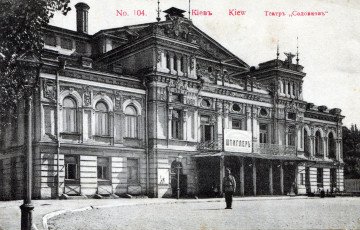
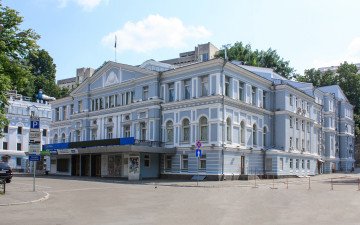
The story of Macbeth is as old as the English language. It follows a Scottish lord who, driven by a prophecy from three witches and his own ambition, murders King Duncan and spirals into paranoia and madness. Written in 1623, this timeless tragedy of power and betrayal, fueled by supernatural forces, has remained a staple of theater and film for over four centuries. But Uryvsky’s interpretation is anything but conventional. His adaptation puts a strong emphasis on scenography, mixing classical scenes with sound effects and even a giant tube man.
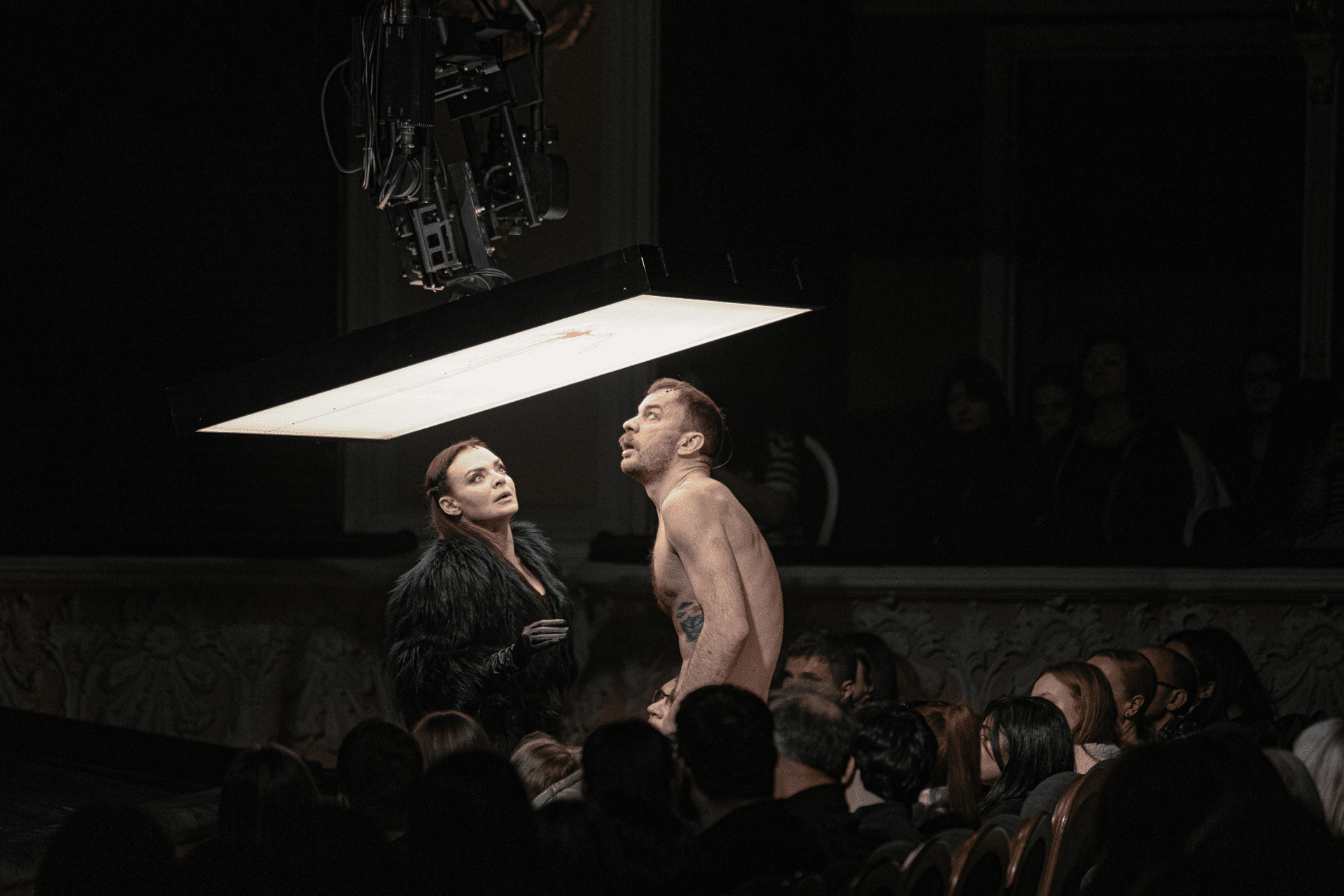
The set design is stark and dark. There is nothing on the stage—no decorations, just an ominous emptiness. The wardrobe design echoes this minimalist approach, serving as a metaphor for the modern world, where the darkness is no longer only outside. Uryvsky’s Macbeth swaps out the traditional witches for a more insidious force—hybrid and information warfare that infiltrates society, manipulating people online with false “oracles.” The witches of this production are not flesh-and-blood figures but three digital screens, always moving, always watching. “No one knows for sure if the three witches really existed or if the protagonist chose his own future,” says Uryvsky. The parallels with the technological age are striking.
This play is especially relevant today—for me and for the people—because it highlights both personal and political realities,” he says. “Plus, it’s story resonates with every country and every era.
Ivan Uryvskyi
Director of Macbeth
The cast
One of the most innovative aspects of this production is its use of two separate casts, offering different interpretations of the characters. Oleksandr Rudynskyi embodies Macbeth in one version, while Akmal Guryezov takes on the role in a separate performance, allowing audiences to see the psychological depth of the character from multiple angles. The dual-casting approach highlights the play’s themes of fate and personal choice, reinforcing the idea that Macbeth’s downfall is both inevitable and self-inflicted.
Lady Macbeth is played with raw intensity by Tatyana Mikhina and Malvina Khachatryan whose portrayal moves between calculated ambition and unraveling despair. The chemistry between the leads is electric, adding to the tension that builds throughout the production.
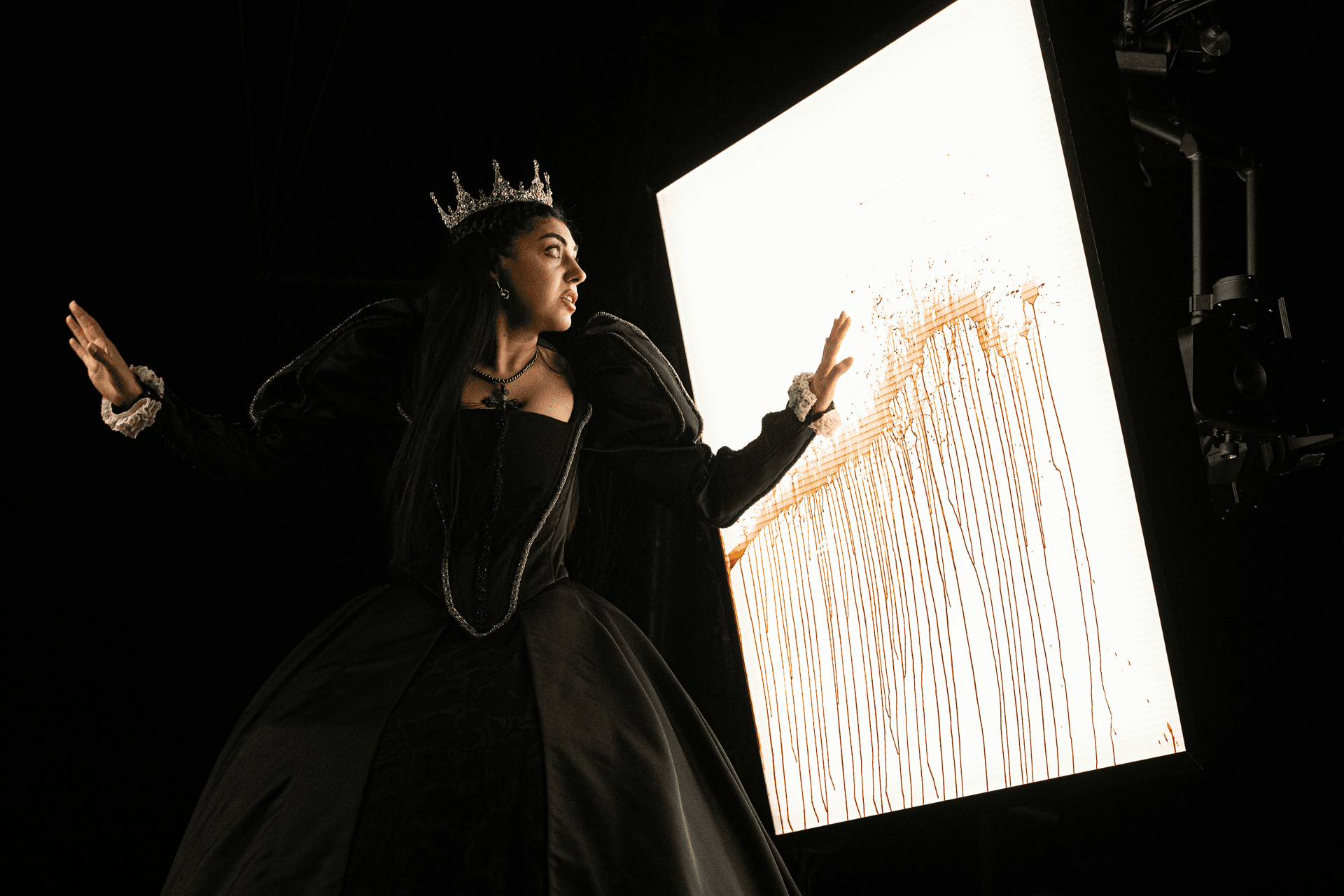
Reception
While air raid alarms often interrupt performances, they haven’t slowed ticket sales. When sirens sound, the actors pause and wait for the all-clear signal before continuing the show. Macbeth has received glowing reviews, with audiences leaving the theater feeling that they got exactly what they came for—a production that is not only artistically compelling but also deeply resonant with Ukraine’s current reality.
More than a classic tragedy, Uryvsky’s Macbeth holds up a mirror to today’s world, forcing audiences to reckon with the dangers of unchecked ambition, manipulation, and power. And in a country that knows all too well the cost of these forces, the play’s impact is impossible to ignore.
@united24media.com After the success of The Witch of Konotop, Ukrainian director Ivan Uryvskyi and Franko Theatre return with a powerful new hit—Macbeth. Source: ICTV
♬ original sound - united24media.com
-fca37bf6b0e73483220d55f0816978cf.jpeg)


-85339c7a2471296aa16e967758e245c6.png)

